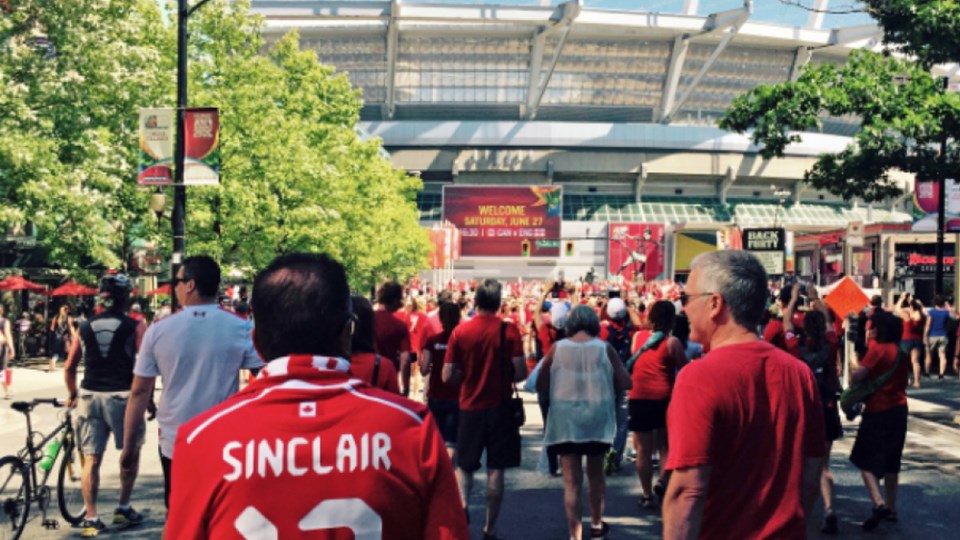After almost seven years, the contract that shows how British Columbia taxpayers subsidized one of the world’s richest, most controversial sports organizations is finally revealed.
An adjudicator with the Office of the Information and Privacy Commissioner ruled in July 2021 that the B.C. Pavilion Corp. (PavCo), must release its agreement with Canadian Soccer Association Inc. (CSA) for hosting the FIFA Women’s World Cup Canada 2015 at BC Place Stadium. CSA dropped its court challenge earlier this month and disclosed the contract to this reporter.
The agreement called for total payments between $1.725 million and $1.975 million to PavCo.
The maximum amount in the contract was just under the $2 million earmarked by BC Liberal tourism and sport minister Ida Chong in April 2012. Chong did not specifically say at the time how FIFA would spend taxpayers’ money.
The agreement gave the FIFA event exclusive use of the stadium from May 31, 2015, through July 7, 2015, two days after the United States beat Japan in the final.
CSA had control of the stadium – even lounges and every private suite, save for the BC Place Suite and one other. There were clauses to remove all advertising, so that FIFA could display its own sponsors’ logos and messages, and a ban on the stadium hosting any other event during the period. The B.C. Sports Hall of Fame, which features exhibits on B.C.’s soccer history, was prohibited from opening on match days. The stadium kept food and beverage revenue, but FIFA decided the menu.
CSA agreed to pay a $50,000 deposit upon execution of the contract and the balance seven days after the conclusion of the exclusive use period. The rent was $75,000 per match day, for a total $525,000, plus a lump $625,000 sum for exclusive use of the stadium and a $400,000 contribution to the new artificial turf pitch. The CSA also guaranteed between $300,000 and $400,000 in per-ticket facility fees.
The contract shows CSA officials didn’t actually sign the Stadium Use Agreement until June 10, 2015, two days after BC Place hosted its first tournament doubleheader. Canada was awarded the tournament by default when the only other bidder, Zimbabwe, withdrew in March 2011 and Vancouver named one of six host cities in May 2012.
FIFA took over exclusive use of BC Place just four days after Swiss and American police arrested senior FIFA officials in Zurich for corruption related to awarding the 2018 World Cup to Russia and 2022 World Cup to Qatar. An office had been created for embattled FIFA president Sepp Blatter at BC Place, but he did not travel to Canada for fear of arrest.
The ripple effects of that scandal influenced the BC NDP government’s March 2018 disagreement over a proposal to co-host matches during the 2026 World Cup at BC Place.
In correspondence with the U.S.-led bid, PavCo CEO Ken Cretney had flagged FIFA’s list of demands that B.C. agree to pay unknown costs of host city security, secure land near the stadium for related events, pay for a temporary grass pitch and backup field, absorb inflation and face the possibility of FIFA and CSA unilaterally amending the contract. FIFA’s hosting requirements for 2026 also demanded governments provide it a tax holiday, exemptions from labour laws and permit the import and export of foreign currency.
In late 2020, lawyers for the CSA told an OIPC adjudicator that release of the Canada 2015 contract would threaten Toronto, Montreal and Edmonton bids to co-host 2026 World Cup matches with the U.S. and Mexico. The OIPC adjudicator rejected the argument as speculative. Before the August 2021 deadline to disclose the contract, the CSA’s lawyer with the Lawson Lundell firm filed for a BC Supreme Court judicial review aimed at overturning the decision or having it kicked back to the OIPC for a new inquiry.
The CSA based the application on fresh evidence, specifically Montreal’s July 6, 2021, withdrawal and Premier John Horgan’s July 13 announcement that the B.C. government had reopened talks with CSA about 2026.
In a Feb. 7 appearance on CHEK TV, Horgan said that matches in 2026 could be part of B.C.’s long-term, pandemic recovery strategy. “This is, again, not a done deal, it’s still not a blank cheque,” Horgan said.
Besides B.C.’s $2 million payment for Canada 2015, the City of Vancouver spent $1.2 million on a FIFA Fan Zone at the Larwill Park parking lot and the Government of Canada contributed $15 million.
The Canadian Sport Tourism Alliance’s estimate claimed Canada 2015 matches in Vancouver generated $20.1 million in federal, B.C. and municipal taxes. Research by sports economist Victor Matheson, a professor at the College of the Holy Cross in Massachusetts, has consistently cautioned that mega-event promoters and industry lobbyists rely on input-output modelling in order to attract or defend public subsidies.
In one of Matheson’s reports, Mega-Events: The Effect of the World’s Biggest Sporting Events on Local, Regional, and National Economies, he found that many large sporting events “simply supplant, rather than supplement the regular tourist economy.”
“In other words, the economic impact of a mega-event may be large in a gross sense but the net impact may be small,” Matheson concluded.



